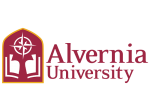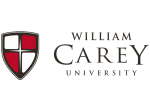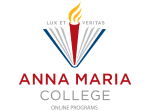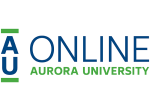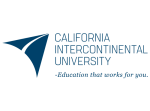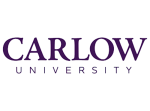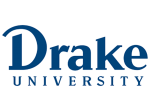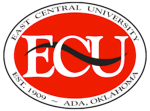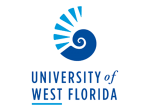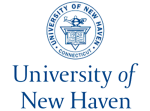
Our accredited online college experts have gathered data, rankings, and reviews on over 1,600 accredited online colleges and universities. If you’re looking for a certain school, then begin by typing the name into the search box. Click on a listing to view school details like the percent admitted, total tuition cost, and degrees offered.
Online colleges offer undergraduate degrees: bachelor’s and associate’s. Online universities also offer graduate degrees: master’s and doctorates. Research shows that consumers believe universities are more prestigious than colleges—they’re not, folks—but because people believe universities are “better,” many new for-profit online schools call themselves “universities,” regardless of the kind of online degrees they offer. That said, when looking for the best online program for you, enrolling in an accredited online college will ensure you get a quality education.
Article Navigation: Fully vs. Partially Online Schools | Featured Accredited Online Schools | Types of Online Schools | Why Choose an Online College? | Pros & Cons | What is Accreditation? | Accreditation & Legitimacy | Types of Accreditation | Selecting an Accredited Online College | How to Apply | Paying for an Online School | Conclusion
Fully Online Schools vs. Partially Online Schools – What’s the Difference?
Many online schools are well worth your time and money. But “online schools” technically come in two flavors: fully online and partially online. Fully online schools deliver all of their academic materials, including lesson plans, video-recorded lectures, and more over the Internet. Students typically access these materials on secure university portals. However, they might still need to virtually attend lectures from time to time. Most fully online programs are 100% asynchronous. They’re ideal for students who wish to attend a school far from home or who prefer part-time schedules.
Partially online schools deliver their educational materials in a hybrid format. Most material is online, but these programs also incorporate in-person requirements. These can take the form of required seminars or in-person weeks or weekends, which all students must attend. Alternatively, they can take the form of practicum classes/credits, which require students to visit learning centers in their local areas. Practicum classes are common in medical programs, like nursing programs.
Top Non-Profit Accredited Online Colleges
Let’s take a look at some featured online schools so you can get a better sense of what to expect. These universities are all accredited and not-for-profit.
Western Governors University
Western Governors University is a private online school currently based in Utah. It offers degrees accredited by many institutions, like the CAEP, ACBPS, and CCNE. Additionally, it’s well known for its online programs because it utilizes a competency-based learning model, ensuring academic rigor and good results for all students.
George Mason University
George Mason University is a Fairfax County, Virginia public research university. It is the largest public university in Virginia and operates four distinct campuses, in addition to a South Korean campus. It offers a variety of in-person and online programs and is accredited by SACS.
Liberty University
Liberty University is a private Baptist school, and its online programs are among the most well-known and popular. In addition, it’s one of the largest Christian universities and most of its enrollment comes from online courses. Additionally, it consists of 17 colleges and the school overall is accredited by SACS.
Ohio University
Ohio University is the first chartered university in Ohio, and it’s also the oldest. It offers over 250 areas of undergraduate study across nine campuses. Additionally, it is fully accredited by the HLC.
Purdue University
Purdue University is a major in-person as well as an online school. Additionally, it has a massive land-grant research university based in West Lafayette, Indiana. It offers over 200 undergraduate majors and over 70 master’s and doctoral programs. The school overall is accredited by the HLC.
University of Kentucky
The University of Kentucky is a public land-grant research university based in Lexington, Kentucky. It offers 93 undergraduate programs as well as over 100 master’s and doctoral programs. Additionally, this school is accredited by SACS.
Types of Accredited Online Colleges
When you attend online school, you’ll attend either a for-profit or not-for-profit university. There are distinct differences, advantages, and disadvantages for each, so let’s take a closer look.
For-Profit
For-profit colleges sell educational resources and degree programs to make a profit. Accordingly, they make those profits for shareholders, owners, investors, and other individuals. Any surplus profits these schools make at the end of the year get distributed to these parties.
At a for-profit university, a college president may report to the Board of Directors, which determines how the school should be run. Tuition collected by the students at for-profit colleges is often used for heavy marketing as well as recruitment campaigns. Additionally, it may be used to cover other operating expenses.
Pros | Cons |
|---|---|
| For-profit colleges often accept higher percentages of minority students or applicants without high school diplomas | For-profit colleges have a lower bachelor’s degree completion rate among students |
| These colleges charge lower rates than some high-value, private nonprofit online universities | Most for-profit colleges charge more than public colleges and online universities |
| For-profit schools often have higher acceptance rates | Some for-profit colleges may have misleading marketing campaigns and materials |
| Many for-profit colleges have vocational training programs |
Not-for-Profit
Not-for-profit colleges, also called nonprofit colleges, receive all of their funding from tuition, fees, endowments, and government grants. As their name suggests, not-for-profit colleges don’t distribute any profits to individuals, including teachers, administrative staff, etc.
Instead, these schools diver their funds into their facilities, programs, and other aspects of the student experience. For example, they might focus on providing better student services, hiring more teachers, etc.
Pros | Cons |
|---|---|
| Generally charge lower tuition than for-profit colleges | Some private nonprofit universities still charge higher tuition than even for-profit schools |
| Students at these schools are less likely to default on their loans | Generally have lower acceptance rates compared to for-profit schools |
| Funnel extra cash back into school programs/resources | Nonprofit schools don’t offer as many online programs as for-profit schools, on average |
| Often have more “secondary” student benefits/resources, like clubs, associations, etc. |
Why Choose an Accredited Online College?
There are hundreds of quality in-person college degree programs to attend. So why would you bother choosing an online college? Basically, there are lots of benefits to attending one of the best online accredited colleges, including:
- Ability to attend college anywhere in the world
- Attend class “asynchronously” without always being attached to a lecture schedule
- Complete work at home or in any other peaceful, quiet environment if you don’t study well at school
You should decide whether online programs are right for you by considering these major advantages, as well as their differences compared to in-person programs.
Online vs. In-Person Degree Programs
Online programs are delivered via the Internet. Their materials, including documents, homework, and even recorded lectures are all viewed on your computer. Thus, many online students benefit from additional flexibility and control over their learning outcomes. In-person degree programs require attendance in physical classrooms. If you complete the requirements, then both types of degree programs award degrees . Accordingly, both types of programs are also taught by knowledgeable, experienced faculty. Many of those faculty members teach both the in-person and online classes of their subjects.
Do Employers Respect Online College Degrees?
Yes, online degrees are respected provided that one’s degree came from an accredited institution or program. Accreditation is all that matters when it comes to college degrees, even for subjects that require in-person practice. That’s because an accredited degree in a subject like nursing will only be accredited if it requires in-person practice completion credits from graduates. Therefore, it’s in your best interest to make sure any online college degree you pursue is accredited by the right institution. Indeed, depending on your profession or major, you may need to pursue a degree accredited by a regional or institutional organization or a programmatic accrediting body.
Can You Get a High Paying Job with an Online Degree?
Absolutely. If you get an online degree from an accredited school or program, then you can get a high-paying job in your field of choice. However, keep in mind that in-person degrees may allow you extra opportunities for networking with fellow graduates or people interested in the same subjects as you.
Pros & Cons of Online College Degrees
Pros | Cons |
|---|---|
| Attend school from anywhere | Fewer chances for in-person networking |
| More schedule flexibility | Sometimes higher tuition fees for out-of-state students |
| Ideal for working students who don’t have time to commute | Less opportunity for face-to-face interaction with professors to ask questions, get support, etc. |
| Good if you want control over your study environment | Some practical classes/experiences might still be required to graduate |
What is Accreditation?
In short, accreditation is a review process carried out by specialized accrediting organizations. Accrediting organizations review both educational programs and entire schools to see if they meet predefined standards relating to rigor, student support, program quality, and more. Regional organizations like SACSCOC or MSCHE accredit many of the best schools. But many programs are also accredited by separate institutions, as well.
Accreditation marks a program or school as high-quality and academically rigorous. Accordingly, many professions require graduates to have degrees from accredited institutions. They require this to ensure that graduates have the right skills and (sometimes) in-person or field experience needed to succeed.
Are Accredited Online Colleges Legitimate?
Online college accreditation and legitimacy is highly important. Most employers don’t have negative feelings or assumptions about online programs as a class. However, they still want to see graduates approach them for job opportunities with accredited, legitimate degrees instead of the opposite. To ensure you don’t run into any trouble post-graduation, you need to know how to identify and avoid degree mills or online college scams.
What Are Degree Mills?
A degree mill is a school with a less-than-stellar reputation known for getting out degrees quickly and easily for the purpose of profit. Most schools – including for-profit schools – strike a balance between making money and offering students suitably rigorous educational challenges. They accept students’ money and have a vested interest in ensuring those students succeed, but they won’t dole out degrees to students who don’t deserve them. Degree mills are the opposite. Thus, they’re more likely to have very low-risk, easy classes that don’t really prepare students for the working world. They do this to artificially bump up their college graduation rates, attracting new students in the process.
Degree mills are often identified by having:
- Artificially high graduation rates
- Very low tuition rates
- Bad reviews
Many degree mills seek to attract new students by making outlandish promises. For instance, they might guarantee graduation in a truncated time frame, or they might advertise very low tuition rates. Their marketing might be aggressive or targeted toward students who didn’t complete college in the past (e.g., they only have a handful of credits).
How to Avoid Online College Scams
By far the best way to avoid online college scams is to research a school you are thinking of attending in the future. Obviously, you should check the reviews of that school and make sure professors and students alike rate it highly. You should also mistrust any colleges with suspicious advertising materials, like pop-up ads or excessive email ads. If you aren’t sure whether an online school’s website is legitimate, then check the URL. If it doesn’t end in “.edu”, then it’s probably not legitimate.
Types of Online School Accreditation
There are many different types of accreditation you might see as you search for accredited online universities. Here’s a detailed breakdown of each accreditation type; regional vs. national, institutional, and program.
Regional Accreditation
Regional accreditation is accreditation by an educational body that accredits entire schools in a given geographic region. These accrediting bodies check for online universities’ quality and academic standards, not the specific standards needed for specialized degrees or majors. The following are some examples of regional accrediting agencies. Middle States Commission on Higher Education (MSCHE) accredits institutions in states like New York, New Jersey, and Pennsylvania. Higher Learning Commission (HLC) accredits in-person and online universities in states like Minnesota, Missouri, South Dakota, and New Mexico. Finally, Southern Association of Colleges and Schools Commission on Colleges (SACSCOC) accredits schools in states like North Carolina, Alabama, and Louisiana.
Regionally accredited online colleges are everywhere, so it’s just a matter of comparing their advantages and costs. Interestingly, many online colleges with regional accreditation are the same as national accredited online colleges, making your search even easier. The best regionally accredited colleges online are ideal for students who want to prioritize education quality.
National Accreditation
National accreditation is exactly what it sounds like – a review process that accredits institutions on the national level. These organizations are recognized by the US Department of Education and are responsible for ensuring universities are legitimate at a baseline level. Their organizations include: the Distance Education Accrediting Commission (DEAC), the Council on Occupational Education (COE), and the Accrediting Commission of Career Schools and Colleges (ACCSC).
Again, accredited colleges with online degree programs are often nationally and regionally accredited. Nationally accredited online colleges make up most institutions in any list of online colleges.
Institutional Accreditation
Institutional accreditation involves reviewing and examining an entire university, including accredited colleges online. It’s usually performed by a national or regional accrediting body, such as the organizations mentioned above. Either type of organization can perform institutional accreditation for a given college. In some cases, a college must be approved by an institutional accrediting agency in order to grant degrees at all (or be considered legitimate). Institutions must also renew their institutional accreditation every few years to give out online accredited degrees.
Of the two, institutional accreditation is important if your degree or major doesn’t require specialized accreditation. For example, if you want to be a nurse, then your program must be accredited by the Commission on Collegiate Nursing Education (CCNE). That accreditation is more important than institutional accreditation.
Specialized/Program Accreditation
Specialized or program accreditation is the accreditation of a specific program at a given school, like a school’s nursing program, accounting program, etc. This type of accreditation is necessary for certain majors or industries where a lot of specialized knowledge is necessary to succeed.
Specialized accreditation is always performed by non-government or private agencies that have the necessary need to know whether a program is good or not. Thus, a school could theoretically have some programs with specialized accreditation but not institutional accreditation. In practice, this is very rare. A school that has good, accredited programs will most likely also be a good overall institution. If you’re pursuing a major with specialized accreditation, then that’s all that matters. Institutional accreditation is also good, but not (likely) necessary for you to be employed later on.
Who Monitors Accrediting Organizations?
The Council for Higher Education Accreditation (CHEA) is responsible for monitoring accrediting organizations. This private, nonprofit organization coordinates all accreditation reviews and activities throughout the US. Concordantly, if an accrediting body or organization is not recognized by CHEA, then it’s not legitimate.
How to Choose an Accredited Online College Degree Program?
Choosing an accredited online degree program can be difficult if you don’t know where to start. In practice, picking the right accredited online college program is similar to choosing the right in-person degree program to attend.
Choose a Degree Level
First, pick the degree level you wish to pursue. An associate degree is often seen as a stepping stone degree that qualifies you for certain entry-level jobs in some industries but little else. It also allows you to clear general education credits that are required to complete all other degrees. Associate degrees take 1 to 2 years to complete.
GetEducated's Picks
- Fisher College Associate of Arts in Early Childhood Education
- East Mississippi Community College Associate of Applied Science (AAS) - Accounting Technology
- ECPI University Associate of Science in Electronics Engineering Technology / Electronics Engineering Technology
A bachelor’s degree or four-year degree is the standard college degree earned by most students. It qualifies you for many advanced positions and high-paying jobs across a variety of different industries.
GetEducated's Picks
- William Carey University Bachelor of Fine Arts / Script Writing
- Alvernia University Bachelor of Arts in Addictions & Mental Health Treatment
- Fisher College Bachelor of Arts in Communication & Media Studies
Whereas, a master’s degree takes another two years to complete after a bachelor’s degree on average. This graduate-level degree enables you to specialize or focus your schooling on a more concentrated area of your chosen niche/major.
GetEducated's Picks
- William Carey University Master of Arts in Christian Theology
- Alvernia University Master of Arts in Organizational Leadership
- Fisher College Master of Arts in Psychology / Mental Health Track
Finally, the doctoral-level degree takes another 3 to 6 years after your master’s degree. Only aspiring doctors, medical professionals, or researchers usually pursue doctoral degrees.
GetEducated's Picks
- William Carey University Doctor of Arts in Music
- Grand Canyon University Doctor of Philosophy in Counselor Education & Supervision (Qualitative Research)
- St. John's University Doctor of Philosophy in Literacy
Choose an Area of Study/Major
Next, you’ll want to choose your area of study or major. This is most important for your bachelor’s degree and higher. Naturally, your area of study or major will affect the majority of focused or specialized classes you take. It also affects the jobs you will qualify for after graduation. For example, if you want to become an engineer, then you need a degree in engineering, not accounting.
Check for Accreditation
As noted above, accreditation is highly important for all online degree programs. Therefore, make sure to check that the program (and school) you wish to attend is accredited. A program’s information page or a school’s “about” page usually display their respective accreditation status.
Ensure the Program Has a Learning Format that Works for You
There are a lot of details to consider when enrolling in online education. For instance, some online programs are 100% online, while others are only partially online. Review each prospective program’s requirements and learning materials/lesson plans to make sure the learning format will work for you, your schedule, and your unique needs. For example, the last thing you want to do is sign up for an online program, assuming it is 100% online, only to discover you need to attend in-person seminars a few times during the upcoming semester.
Consider Cost & Location of the Program
Lastly, don’t forget to consider the cost and overall location of the program. The program’s location can affect your tuition rates. Most schools charge out-of-state students more, even for distance learning degrees. Furthermore, a school’s headquarters or primary campus location can impact its price. A school in California, as an example, will usually cost more than a school based in Alabama.
How to Apply to an Accredited Online College
Applying to the best accredited online colleges follows the same overall process as applying to an accredited in-person college program.
Make a Resume/Portfolio
You’ll first want to create a resume and your portfolio for your upcoming application. The resume should include a breakdown of your previous educational history and relevant work experience. If you’re applying to an art program or certain engineering programs, then you may be required to include a portfolio. Certainly, the portfolio should have samples of your best previous work.
Acquire Letters of Recommendation
Many fully accredited online colleges also require one to three letters of recommendation. This is more common for graduate-level degrees. If your previous work experience is relevant to your degree program, then letters of recommendation can come from former professors or work supervisors.
Prepare the Application & Application Fee
Prepare your college program application ahead of time, as these often take up to an hour to complete and fill out with all your information. Most colleges also charge application fees that can be anywhere between $20 and $100. You can typically pay these fees online by credit or debit card.
Collect Transcripts
Online schools will require your previous college transcripts (if applicable). You can order these from your previous universities. Of course, you should do this well ahead of the application deadline. It often takes several weeks or months to send sealed transcripts to your new program’s university.
Note that, because of that timeline, you’ll often submit your transcripts before or after your main application. Online colleges with accreditation typically offer a few weeks for your transcripts to arrive.
Submit Test Scores
Some programs require you to submit test scores, including SAT or ACT scores. College admissions and merit-based scholarships both use the SAT and ACT test scores. They do a good job of measuring the comprehensive or holistic academic intelligence of students. The ACT, however, does include an optional essay and enables you to use a calculator on some math questions.,
At the graduate level, test scores from the GRE, GMAT, LSAT, and other advanced tests are often necessary. The GRE or Graduate Record Examination is the most common graduate-level college entrance exam. It’s needed for most academic graduate schools and some nursing programs. Whereas, graduate business programs, like MBA programs, often require the GMAT or Graduate Management Admissions Test. Whereas, law schools require the LSAT or Law School Admission Test which is a graduate-level exam. Accredited colleges with online degree programs almost always require at least some of these graduate-level exams for master’s students.
Be sure to include these test scores in your application. Alternatively, like college transcripts, order and send them to online colleges with accreditation ahead of time.
How to Pay for an Online Degree
When it comes time to pay for an online accredited degree, there are several options if you can’t afford your tuition by yourself.
You can always take advantage of financial aid resources. These include:
- The Federal Application for Student Financial Aid (FAFSA). Every college student should fill this out, as it’s the only way to get government loans and special grants, like the Pell Grant
- Scholarships, which are given out by educational institutions, nonprofit organizations, and sometimes even schools that offer college programs
- Grants, which are monetary awards given out by nonprofit organizations and other institutions
- Military benefits. Many military veterans benefit from reduced tuition, low-interest government loans, etc. at online colleges that are accredited
If needed, then you can also take out personal or student loans. Private loans give you total control over your finances, but remember that you’ll eventually have to pay these loans off. If you choose the right degree and major, then you should have an easier time paying off those loans with the money you earn from your new job. Accredited online colleges often provide financial counseling and advice for new students.
Enroll in an Accredited Online School Today!
All in all, online college could be the ideal way for you to get the degree of your dreams. With the right online program, you could qualify for a high-paying job in your field, plus gain valuable educational experience overall. GetEducated is here to help you find the best accredited online college for your needs. Our list of accredited online colleges is sure to help you find the right institution. Check out our database of online accredited colleges today!

